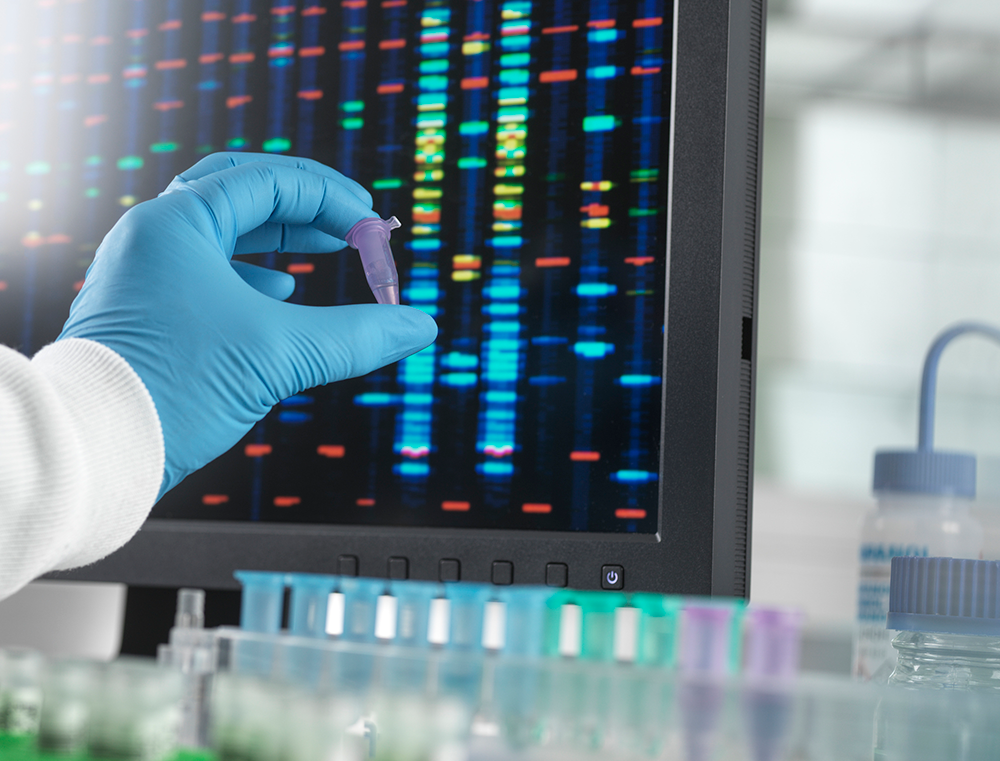By Sarah Barts, RD, LD
“You shouldn’t eat soy; it’s bad for you.” “I have heard soy increases risk for breast cancer.” These statements are commonly heard among patients and health care professionals alike. Whether or not to include soy in your diet has been a source of controversy with no clear cut answers.
Why did soy get a bad rap in the first place? To answer this, first let’s look at the soybean. The soybean can be used and eaten in many forms including edamame, tofu, soy milk, soy powder, and soy-based “meat” alternatives just to name a few. Soy products became popular because they are a lower fat protein source that both vegetarians and non-vegetarians could eat. Early on, consumers would see soy in tofu or milk form, but soon soy protein flooded the “meat” alternative market (also known as meat analogs) and you saw soy in nuggets, burgers, sausage, ribs and even bacon! Currently, soy protein and soy oil are used in many types of foods. Soy protein is commonly used in weight loss shakes and protein bars, and soy oil is often used and labeled as vegetable oil.
So what about the research? Originally, research was conducted on soy to identify some of the health benefits including regulation of cholesterol and protection from certain kinds of cancer.[3] Interest was sparked when researchers identified lower breast cancer rates among women in East Asia as compared to the U.S. It was thought that the consumption of soy that is prominent in the diet of East Asian women may contribute to these lower rates. However, some of the research they found lead to the opposite of what they were considering.[2,3] Soy contains isoflavones, specifically genistein and diadzein, which are phytoestrogens found in plants. Earlier research conducted on mice had suggested that these isoflavones increased the growth of estrogen like (ER+) breast cancer cells. When this research became publicized, many patients at risk for breast cancer or with ER+ breast cancer were cautioned to reduce and/or avoid eating soy foods.[3]
So what now? The most recent research completed has found that although mice/rats had increased levels of isoflavones that are concerning with tumor growth, the way isoflavones are metabolized in rats are quite different than human metabolism.[2,3,4]
Does this mean it is safe? This brings us back to the previous research showing lower breast cancer risks in women of East Asia. Many who live in these areas consume a moderate amount of soy on a daily basis. This equates to one to two servings per day, compared to U.S where it’s more common to consume less than this. The types of soy consumed in East Asia include mainly soy fermented (miso and tempeh) or in whole food form (soy milk, tofu, edamame). It’s important to remember that common diets in East Asia also consist of a lot of vegetables, fruit, grains and fish and are limited in highly processed foods. They also have a tendency to be within normal limits for their weight.[2,3]
Bottom Line: Do I need to eat soy? There are no miracle foods out there. It’s important to consume a well-balanced diet and as recommended by the AICR. Your diet should be plant based including lots of fruits and vegetables, whole grains and legumes. If you choose to include soy in your diet, try to consume natural or fermented forms. Keep your eye on the food labels – even soy milk can be considered processed when it includes extra soy protein powder, added flavors, and sugars. In general it’s a good idea to limit the amount of processed foods you are consuming.[1]
References:
- American Institute of Cancer Research (AICR). http://www.aicr.org/reduce-your-cancer-risk/recommendations-for-cancer-prevention. Accessed August 5, 2014.
- McCullough, M. The Bottom Line on Soy and Breast Cancer Risk. http://www.cancer.org/cancer/news/expertvoices/post/2012/08/02/the-bottom-line-on-soy-and-breast-cancer-risk.aspx. Accessed August 5, 2014.
- Getz, L. Soyfoods & Cancer. http://www.todaysdietitian.com/newarchives/040113p30.shtml. Accessed August 5, 2014.
- Setchell, K.DR, et al. Soy isoflavone phase II metabolism differs between rodents and humans: implications for the effect on breast cancer risk. September 28, 2011. http://ajcn.nutrition.org/content/94/5/1284.abstract. Accessed July 16, 2014.



